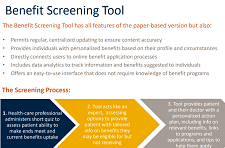Discover financial empowerment resources
Discover financial empowerment resources
This article analyses results from the Canadian Housing Survey, 2022 , using new variables on homelessness and factors contributing to regaining and maintaining housing. The paper provides a descriptive overview of different types of homelessness experiences in Canada, highlighting select...

The Reducing the Impact of Financial Strain (RIFS) project is a ground-breaking collaboration between communities and their Primary Care Networks that aims to reduce financial strain as a barrier to health, particularly in areas of cancer, chronic-disease-management, and prevention. Did you know...
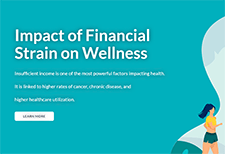
Food insecurity—the inadequate access to food due to financial constraints—affects 1 in 6 households in Canada, with serious health implications. Family benefit programs supplementing income have shown potential in mitigating the risk of food insecurity, but there is little understanding of...

Drawing on data for 54,000 households from Statistics Canada's Canadian Income Survey conducted in 2021, a disturbingly high rate of household food insecurity was identified. Food insecurity consists of inadequate or insecure access to food due to financial constraints. The prevalence of...

Social prescribing is a means of connecting people to a range of community services and activities to improve their health and well-being. These services vary based on each person’s needs and interests, and can include food subsidies, transportation, fitness classes, arts and culture engagement,...
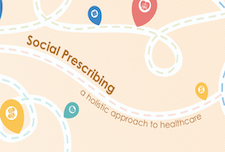
The Canadian Institute for Social Prescribing (CISP) is a new national hub to link people and share practices that connect people to community-based supports and services that can help improve their health and...
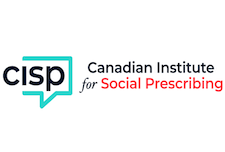
The following snapshot aims to highlight how Anti-Black racism and systemic discrimination are key drivers of health inequalities faced by diverse Black Canadian communities. Evidence of institutional discrimination in key determinants of health is also presented, including education, income, and...

Financial stress is the root cause of many adverse health outcomes among poor and low-income children and their families, yet few clinical interventions have been developed to improve health by directly addressing patient and family finances. Medical-Financial Partnerships (MFPs) are novel...

Social Determinants of Health: The Canadian Facts, 2nd edition, provides Canadians with an updated introduction to the social determinants of our health. We first explain how living conditions “get under the skin” to either promote health or cause disease. We then explain, for each of the 17...
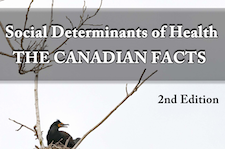
This report illustrates the hidden impacts of food insecurity in people’s lives through a survey of 561 people in 22 communities across Canada. The people interviewed shared that food insecurity makes them ill, breaks down relationships, makes it harder to get stable work, and fully participate...

Building on the Asset Funders Network’s the Health and Wealth Connection: Investment Opportunities Across the Life Course brief, this paper details: What we know about the health-wealth connection for adults. Why investment in integration is important. How philanthropy can contribute to...

Research has shown that even short-term isolation can have long-term impacts to mental health. Social and community supports are essential for vulnerable persons, especially during times of severe impacts to routine and imposed social distancing. This report discusses the findings of the Rx:...
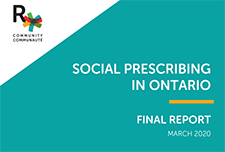
Income volatility is increasing in the United States and presents a growing public health problem. This study examines associations of long-term income volatility with incident cardiovascular disease and all-cause...

The G20 Fukuoka Policy Priorities for Ageing and Financial Inclusion is jointly prepared by the GPFI and the OECD. The document identifies eight priorities to help policy makers, financial service providers, consumers and other actors in the real economy to identify and address the challenges...

Prosper Canada and AFOA Canada are pleased to collaboratively tell the story of The Shared Path: First Nations Financial Wellness. This work was undertaken in the spirit of reconciliation between Indigenous Peoples and non-Indigenous people in Canada and creating a more equitable and inclusive...

This report discusses the interactions between finances and mental health, based on the experience of over 5000 individuals who have lived with mental health problems. Mental health problems leading to relationship difficulties, physical health problems, mental health treatments, cognitive...

In this presentation, Noralou P. Roos, Co-Director, GetYourBenefits! and Professor, Manitoba Centre for Health Policy, explains how access to tax filing and benefits is an important poverty intervention. This presentation is from the panel discussion 'National and regional strategies to boost tax...

This is a webinar on the connection between health and wealth. Discusses social determinants of health, effects of financial stress, racial background, child poverty, and program examples of support...
This study analyzes the effect of individual finances (specifically creditworthiness and severely delinquent debt) on mortality risk. A large (approximately 170,000 individuals) subsample of a quarterly panel data set of individual credit reports is utilized in an instrumental variables design....
There is mounting evidence that the issues of financial, physical, and mental health are inexorably linked. Among funders, growing awareness of this intersection is sparking an exciting expansion of focused investments in both asset building and health promotion/disease prevention. This brief will...
This brief is the fourth of a five-part series that highlights the need and opportunity for integrating financial capability services into social service programs. The goal of this integration is to improve overall financial outcomes that lead to financial security for low- and moderate-income...
Living in a community with lower socioeconomic status is associated with higher mortality. However, few studies have examined associations between community socioeconomic characteristics and mortality among the First Nations population. The Community Well-Being Index (CWB), a measure of the social...
This study explores relationships between selected social determinants of health and health outcomes for the off-reserve First Nations population aged 15 and older. The data are from the 2012 Aboriginal Peoples Survey (APS), and cover topics such as chronic conditions, smoking, alcohol consumption,...
The aim of this scoping review of Canadian literature is to examine how the Canadian public understands these seven key social determinants of health that we identified in Making the Connections and to identify gaps in the public’s understanding of the SODH and the research on this subject. Based...
This report provides information on the results of Phase 1 of the Benefits Screening Tool project. Details on Phase 2 of the project (July 2016 to March 2018) are also included. The online Benefits Screening Tool (BST) enables health practitioners to screen patients for poverty and suggest...
